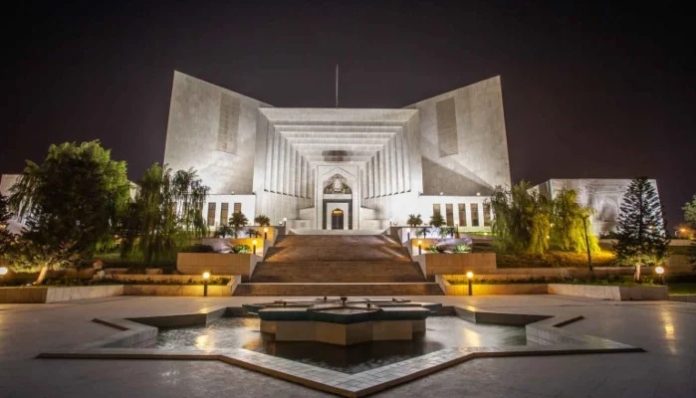DNA
ISLAMABAD: The Judicial Commission of Pakistan (JCP) will consider the appointment of four ad hoc judges to reduce the pending cases in the Supreme Court.
According to the sources, Chief Justice of Pakistan (CJP) Qazi Faez Isa has nominated Justice (retd) Mushir Alam and Justice (retd) Maqbool Baqir for ad hoc judges.
Meanwhile, names of Justice (retd) Mazhar Alam Miankhel and Justice (retd) Sardar Tariq Masood are also included in the list.
Justice Alam retired as the apex court judge in August 2021, Justice Baqar in April 2022, Justice Miankhel in July 2022 and Justice Masood in March 2024.
A retired judge can be appointed ad hoc judge in three years or less and four former judges of the SC have been proposed to be made ad hoc judges for three years.
The meeting of the Judicial Commission will be held on July 19 at 3pm in the top court’s conference room.
The official note for the meeting says that despite best efforts, the cases in the top court continue to accumulate.
“In view of the huge number of pending cases and the ever-increasing trend of institution of cases in the SC, an effective way to ensure that more cases are decided than instituted and to reduce, and hopefully eliminate the cases which arc pending adjudication for several years, it would be appropriate to appoint experienced Judges as ad hoc Judges of the SC,” said the notification.
The Law and Justice Commission of Pakistan, it its bi-annual report of judicial statistics, said the number of pending cases in the courts surged to 2.26 million during the second half of the year 2023, increasing the overall pendency of cases by 3.9%.
The report revealed that 82% of the pending cases (1.86 million) were at the district judiciary level and the remaining 18% (0.39 million cases) were at the upper tier, including the SC, Federal Shariat Court, and high courts.
As per the report, 2.38 million new cases were filed during the period, while the courts managed to decide 2.30 million cases.
Despite a significant settlement of cases, the pending cases increased due to the continual filing of new ones, the statement said.
“Civil cases constitute 81% of the cases pending in the high courts, while criminal cases account for 19%.”

















